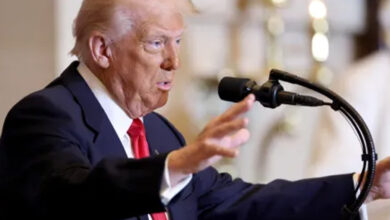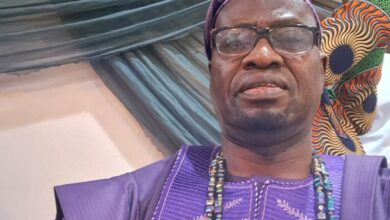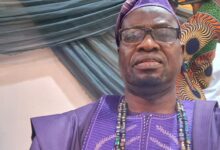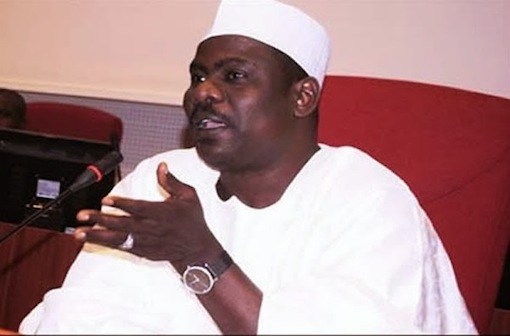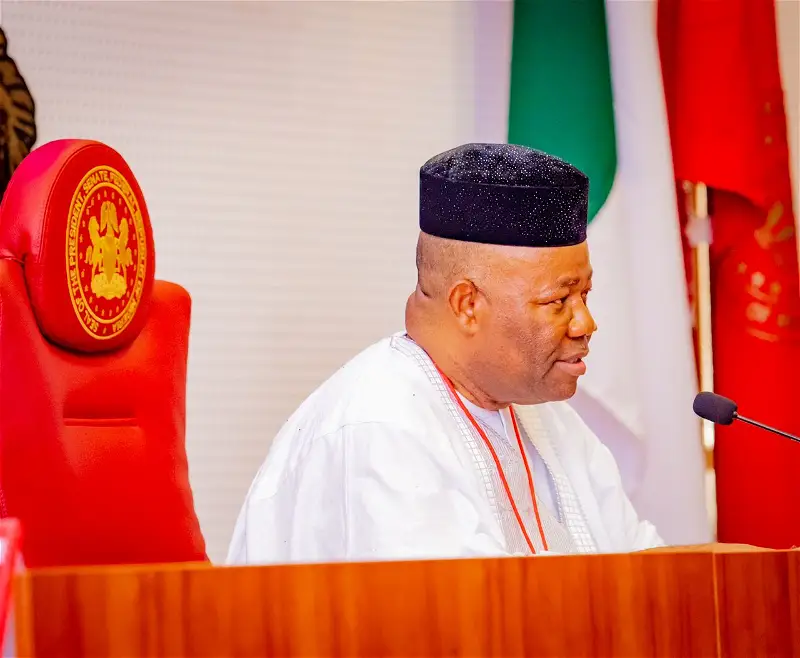At Last! Senate succumbs to pressure, passes Buhari’s anti-corruption Bill
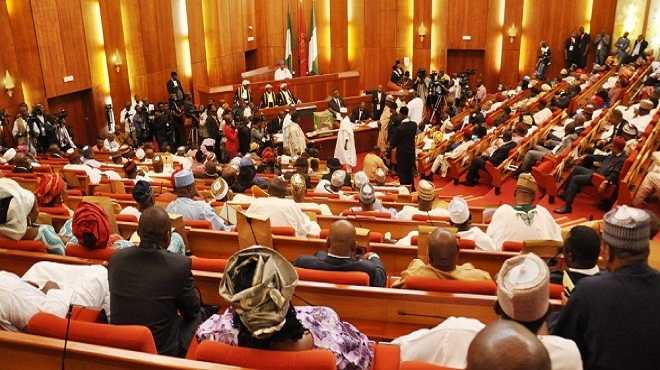
*Process pending in House of Reps
*Green Chamber’s first and last reading of Bill was February 17, 2016
“It is possible that the government of UAE may have the names of Nigerians who have properties in that country. What needs to be done is to ensure that they are identified and their stolen properties repatriated back to Nigeria,” Dahiru added.
The Senate, on Tuesday, passed an Executive Bill on anti-corruption, more than 15 months after it was presented by President Muhammadu Buhari.
The law is crucial to the president’s drive to the recovery of looted funds stashed abroad.

The bill received rapid legislative action when it was read the first time on February 15, and then the second time on March 10, 2016.
But since then not much was heard about it in both chambers even as the president continued to sign a string of anti-corruption treaties with some foreign countries like the UAE and the U.K.
Tagged “the Mutual Assistance in Criminal matters Bill” it is meant to facilitate the identification, tracing, freezing, restraining, recovery, forfeiture and confiscation of proceeds of crime, among others.
The bill, which is to provide mutual assistance in criminal matters between Nigeria and other foreign states, will provide a legal framework to strengthen the fight against corruption, terrorism, economic and financial crimes, money laundering and other related offences.
The bill will also facilitate the voluntary attendance of persons in the requesting state.
It is also intended to facilitate the temporary transfer of persons in custody to assist in investigations or appear as witness, facilitate obtaining and preserving of computer data, and providing any other assistance that is not contrary to the law of the requesting state.
The passage of the bill came weeks after the Minister of Justice and Attorney General of the Federation, Mr. Abubakar Malami raised the alarm that the lawmakers were slowing the pace of the fight against corruption by delaying the passage of the bill.
The Chairman of the Committee on Judiciary, Senator David Umaru (APC, Niger), said the enactment of the law is paramount to the anti-corruption drive of the government. He pointed out that it would eliminate territorial jurisdictional constraints in the prosecution of cross border crimes.
He said the globalisation and advancement in Information and Communication Technology (ICT) have made it imperative for a legislation to promote cooperation for the prosecution of cross border offenders and transnational organised Crimes.
“The passage of the bill will help combating corruption and improve Nigeria’s image in the international community. It will also serve as a fiat for Nigeria to be admitted as a member of the Financial Action Task Force (FATF), “he said.
He added that the scope of the bill had been widened from the Mutual Legal Assistance in Criminal Matters in the Commonwealth (Enactment and Enforcement) Act 2004, to assume international dimensions in participation and laundering of the proceeds of crime.
In his remark, the Senate President, Senator Bukola Saraki said the passage of the bill would restore confidence of foreign investors in the country.
“This anti-money laundering legislation is a key component of President Muhammadu Buhari’s war on corruption agenda.
“This act will facilitate the needed cooperation with other states to prevent individuals from escaping prosecution by fleeing to another country.
“This is the kind of innovative and cooperative anti-corruption scheme that will truly discourage money laundering. I and my colleagues applaud the President’s creativity and determination to discourage this kind of corruption, “he said.
Addressing newsmen, the Senate Spokesperson, Senator Aliyu Sabi Abdullahi (APC, Niger) said the passage of the bill showed that the Senate was not against the Anti-Corruption war being waged by President Buhari.
Bill still pending at House
At the House of Representatives, the bill was read for the first time on February 17, 2016, and since then nothing has been heard about it.
The bill, supposed to come for second reading is said to be delayed due to a number of reasons.
It was gathered that both the Senate and the House had decided to stay action on the bill, along with anti-money laundering bill, in order to “sort out some grey areas.”
However, somewhere along the line, the Senate decided to continue work on the bill, while the House was still consulting.
A source close to the House leadership told Daily Trust last night that some key members of the leadership had been consulting widely on the bill in order to avoid a situation where the opposition would “kill it during debate.”
“It has been under consideration since it was presented, but the truth of the matter is that we want to avoid making mistakes so that the opposition lawmakers would not cash in on that. We’ve observed that there are a number of grey areas to be addressed.
“As a matter of fact, we have met with the Attorney General, the EFCC and other relevant stakeholders to sort things out.
“If we don’t do all this fine-tuning, the bill may not scale through. Of course you know the House is different from the Senate.
“But the consultations will come to an end soon. I believe the House will soon debate the bill and refer it to the relevant committees,” the source said.
Attempts to get the official position of the House from the spokesman, Rep Abdulrazak Namdas (APC, Adamawa) were not successful as he was said to be out of the country.
Nigeria, UAE’s MoUs on recovery of stolen funds
Nigeria and United Arab Emirates on January 19, 2016 in Abu Dhabi, signed bilateral agreements on recovery and repatriation of stolen funds and extradition of culpable officials.
The Minister of Justice, Abubakar Malami, and his counterpart in the United Arab Emirates, Bin Saeed Albadi, signed the Judicial Agreements on Extradition, Transfer of Sentenced Persons, Mutual Legal Assistance on Criminal Matters, and Mutual Legal Assistance on Criminal and Commercial Matters, which included the recovery and repatriation of stolen wealth.
The pacts were among a series of other bilateral agreements signed by members of President Muhammadu Buhari’s delegation to the UAE for the World Energy Forum.
The Mutual Legal Assistance on Criminal and Commercial Matters allows the UAE government repatriates stolen monies stashed in that country.
As the Nigerian Senate legalised the pacts, experts said Nigeria can now demand the repatriation of funds stashed in the UAE and demand the extradition of Nigerian fugitives resident in that country.
Billions of dollars of Nigeria’s loots are believed to have been stashed in banks or invested in real estates in Dubai and Abu Dhabi.
A retired diplomat, Ambassador Sulaiman Dahiru said the next action now is for the Nigerian mission in UAE to be informed of the details of the agreement and then pursue the repatriation of looted assets back to the country.
“What’s next for the government now is to pursue the repatriation of the looted funds. And in pursuing it, clear instructions would be given to our embassy there to work very hard and get the funds repatriated.
“There is a standing agreement between Nigeria and UAE and since the Senate has legalise it, all the details of the agreement in the custody of either Ministry of Justice or EFCC would be made available to the Nigerian mission in UAE for it to start working on the repatriation of stolen asset,” he said.
With this agreement, Dahiru said it was quite possible for Nigeria to see more of looted assets in UAE recovered and repatriated to the country.
“Once the law is signed by the president or acting president, the next thing is to work very hard and get the looted money repatriated”, he said.
He said efforts must be made to identify Nigerians who had stolen from the treasury and stashed illicit funds in UAE with their names submitted to the authorities there.
“It is possible that the government of UAE may have the names of Nigerians who have properties in that country. What needs to be done is to ensure that they are identified and their stolen properties repatriated back to Nigeria,” Dahiru added.



